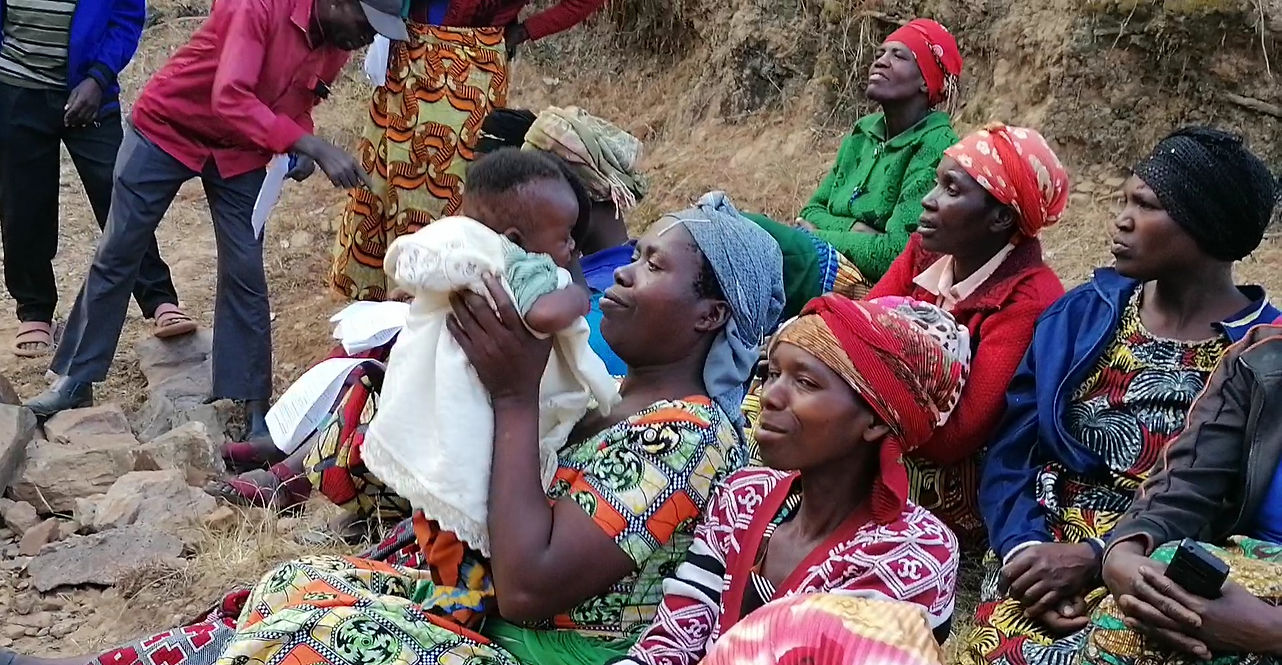Linking Health and Education in Early Years

How can you build a children and family centre in Rwanda, when there are no government funds that will pay for it?
How can you provide ongoing support to government schools helping them to provide excellent foundational education that is not time bound and can change with contextual needs?
How can you help communities and families understand the importance of the first few years in a child’s life to optimise their life chances and what they can do to enhance them?
How can you give the help needed without reliance on ongoing donations in an uncertain world?

A Problem

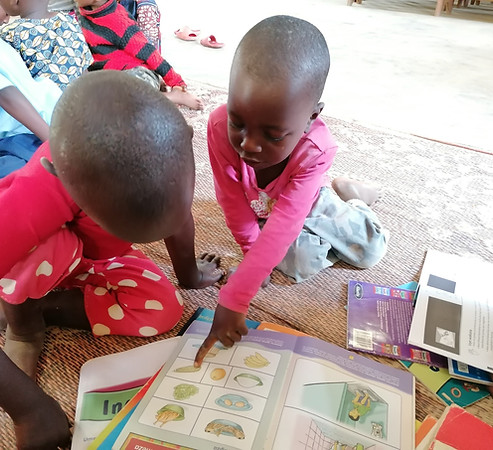
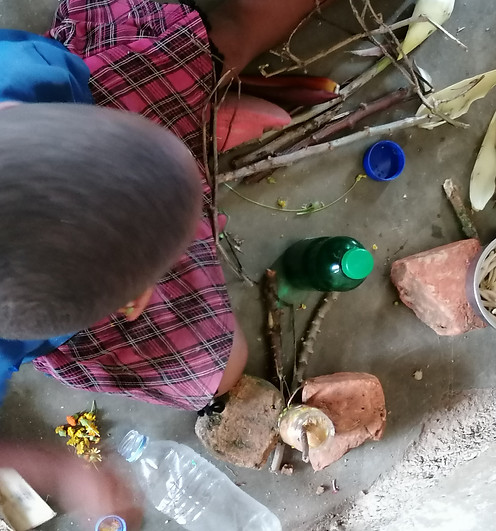
The Solution
Making a difference
Imagine a centre designed to be welcoming and supportive.
A model primary and nursery school that embodies the recently published Early Childhood Development centre’s standards.
A centre built to be entirely self sufficient for water and electricity needs, keeping running costs to a minimum and supporting compliance with WASH standards.
Teachers use age-appropriate teaching methods and provide mentoring and outreach services to schools throughout the district. The government curricula are followed, but pedagogies developed and employed that support the teaching of them. An inclusive school with special educational needs and inclusion expertise on the staff. No child is left behind.
On site the large community hub building hosts free play sessions for under 5s. Run daily by skilled play leaders. Sessions are tailored to user groups, parents with their children, homebased childminders with their charges or teenage mums. This is a space where adults can learn about early child development in a warm and supportive environment. A place where disability inclusion expertise can be accessed. A place where families in need can be referred for help with parenting, disability inclusion or nutrition.
There is a space for community health and social workers to carry out their tasks. Workers who can draw on the expertise in the centre on inclusion, nutrition and early childhood development, supporting them to be more effective in their work.
A large kitchen garden grows local produce carefully curated for availability, nutritional value and productivity.
The school kitchens and kitchen gardens are used to provide training in nutrition for families identified by community health workers.
In the evenings the hub space is used for adult education classes.
The centre supports a team of skilled outreach workers that work across the district, setting up and supporting similar smaller scale hubs in more rural areas. Working in partnership with sector level local government.
This is a centre that works hand in hand with it’s local community, schools and local government across the district.
The school is fee paying. Modest fees that are affordable by parents able to choose a private education for their children. By charging for this service (which is a usual part of the educational offering in Rwanda), we can offer the rest of the services free to the more marginalised members of the community. A self-sufficient and sustainable provision of services where they are most needed.
Why is founding a centre like this important?
Children are the future and best way to truly transform a society and have a positive impact is by improving outcomes for them. It is well known that the most effective interventions are those made in the first 5 years of a child’s life. This is the period when 90% of the brain is developed, and following this ‘building’ period, it is much more difficult to change the developmental patterns of the brain.
To develop well, children need to be well nourished. They must consume a nutritionally balanced and varied diet full of the micronutrients needed to build their bodies. They need to be fed intellectually, given a chance to interact with a stimulating range of people and objects, have opportunities to be curious, to play, to experiment, and hypothesise.
A centre like this provides the most marginalised families in society with the support they need to provide a good foundation for their children.
Homebased childminders who work in the most marginalised communities, are given access to the information and training they need to provide effective early years education to the children in their care.
Community health and social workers who work at the grass roots level of society are given the support, knowledge and skills that they need to impact their communities effectively.
Schools and sector level education officers have a model of excellence to work with of effective curriculum delivery alongside mentors to support their CPD across nursery and primary education.
By supporting this centre, you give direct support to the adults who are best positioned to impact the development of children. Helping them become curious, innovative and critically thinking adults. Creating citizens who are economically productive and contribute effectively to their communities. Driving positive change well beyond the boundaries of the centre and it’s users.
A Self-funding Sustainable Model
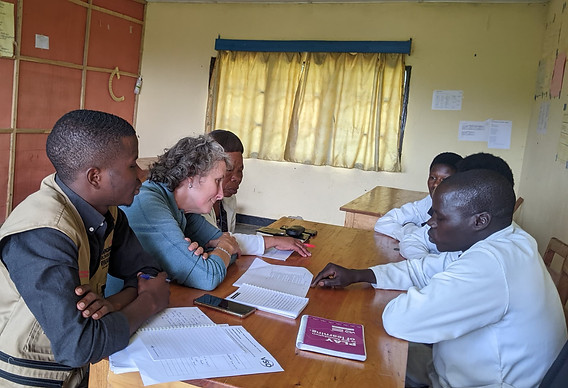
This school and family centre is designed to be embedded in the community and work in partnership with local government. It will be a resource that the district can rely on.
A centre able to respond to the changing context and priorities of the local community and those of the wider district.
There to provide cohesive and consistent support to Government schools. Helping those schools offer quality education to the wider population.
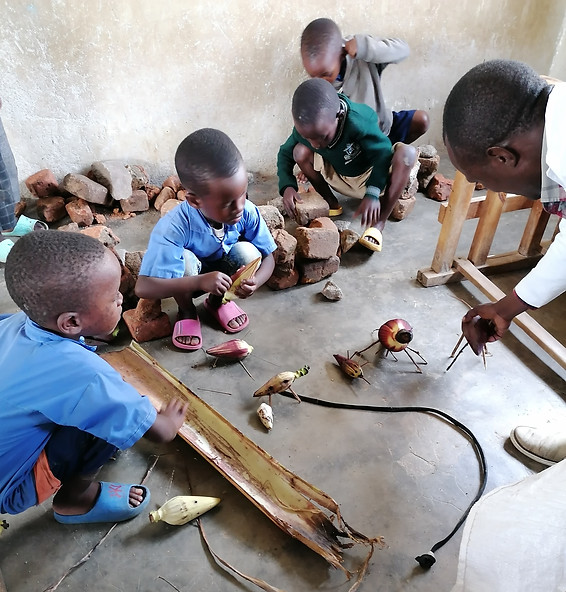

Early Childhood Education (ECE) and Foundational education is high on the government agenda in Rwanda. ECE has recently become part of Government funded education, placing ECE teachers on the government payroll. The recently published Foundational Education Strategy document (2024-5) is in response to the continuously poor outcomes for students at the end of primary. This document recognises the need for quality ECE to remedy this.
Although there has been an ECE curriculum in place for a decade, and a curriculum for primary that is skills rather than knowledge based, evidence shows that teachers in Primary and ECE are still using pedagogies that rely on rote learning and repetition.
Previously EC teachers were paid by parents, and many were and still are unqualified. The current infrastructure is inadequate for the needs of the sector with most Government funded public ECE classrooms overcrowded, and many primary schools using a mixture of onsite and offsite classrooms for ECE. Classrooms are often a long distance from the school. This appears to be becoming more of an issue year on year as the number of young children increases, and infrastructure is not keeping pace with demand.
There are a mixture of different sorts of providers of childcare/early education in the country including maids in private homes and home-based child minders who often look after more than 15 children in their own homes. As well as more formal school based and community based early childhood development centres (ECDs). The former, less regulated providers are usually unqualified with lower levels of education and may lack knowledge, understanding and skills around early childhood development and health.
From my extensive experience of observing teaching in classrooms in government schools, many qualified teachers found it challenging to deliver the curriculum using developmentally appropriate pedagogical strategies and were unaware of what these might be.
The Foundational Education Strategy 24-25 identifies 5 priorities to support children to successfully achieve at the end of primary education including raising the quality of education, providing effective differentiation for learners and working with parents and communities.
The National Child Development Agency of the Rwandan Government (NCDA) in recent years has repeatedly published documents that endorse and encourage a holistic approach to supporting ECD. At their National Conference on ECD August 2024 they called for ‘..enhanced holistic services.’ For ECD.
While reports show that there is a good increase in uptake of Early Childhood Education with higher percentages of children attending, the numbers are still relatively low and most settings do not meet the standards set by the Government. Stunting levels in under 5s have remained stubbornly high over the past decade despite this being a priority for Government.
There is a clear need for support in both the formal and less formal sectors of ECE and the government is calling for partners to fill this gap.
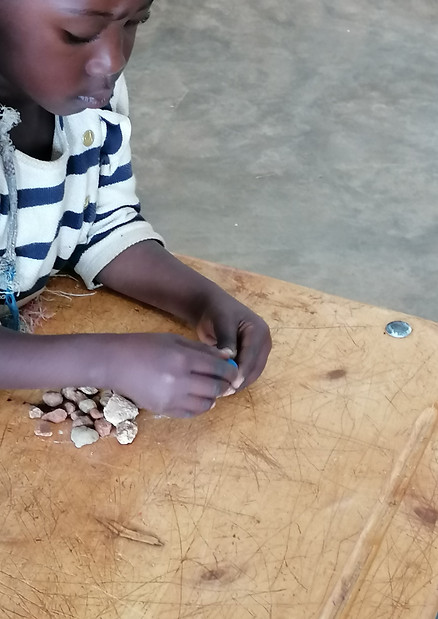

The Rwandan Context
How we fit
